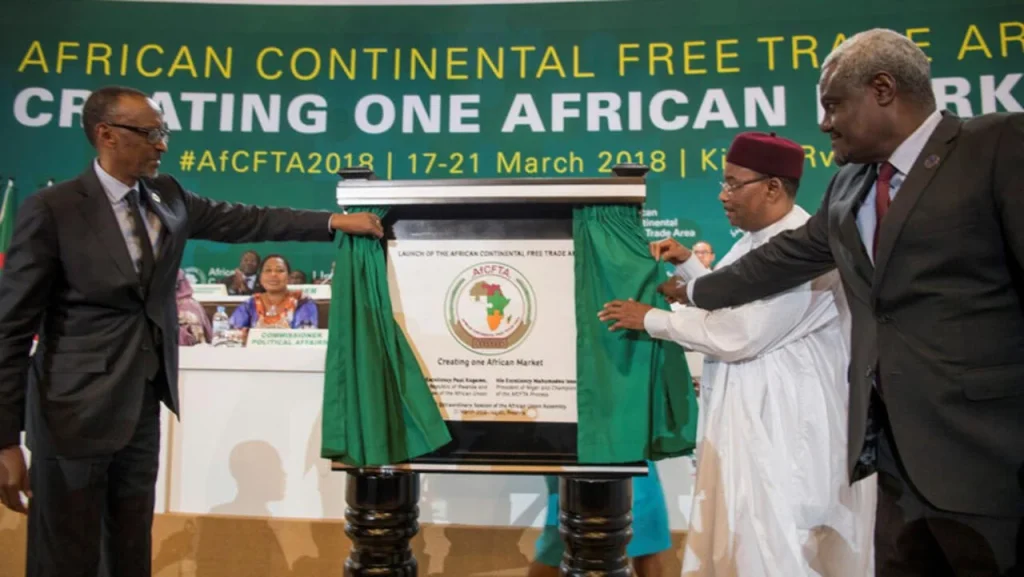On January 1, 2021, African nations started trading under the African Continental Free Trade Area (AfCFTA), creating the world’s largest free trade bloc since the World Trade Organization.
The $3.4 trillion market unites 1.3 billion people, aiming to boost intra-African trade and reduce poverty for millions by 2035, according to the World Bank.
Symbolic Launch Amid Challenges
The launch, delayed from July 2020 due to COVID-19, marks a symbolic step. Ghana’s President Nana Akufo-Addo celebrated the milestone online, saying, “A new Africa emerges with urgency and a drive for self-reliance.” However, experts like W Gyude Moore, a former Liberian minister, predict full implementation may take decades due to complex negotiations.
Goals and Opportunities
The AfCFTA seeks to increase trade among African neighbors and build local value chains. Wamkele Mene, AfCFTA secretary-general, noted that COVID-19 exposed Africa’s reliance on global supply chains and commodity exports. “When global chains falter, Africa suffers,” he said, emphasizing the need for self-sufficiency.
Progress and Hurdles
All African countries except Eritrea signed the AfCFTA framework, with 34 ratifying it. Yet, challenges like poor infrastructure, border bureaucracy, and corruption persist. The rules of origin, crucial for tariff decisions, remain incomplete. Meanwhile, 41 of 54 member states submitted tariff reduction schedules, targeting 90% tariff elimination over 5–10 years, with 7% sensitive products getting more time and 3% potentially excluded.
Resistance and Implementation
Some nations, like Nigeria, initially hesitated due to fears of losing to competitive neighbors. Ziad Hamoui of Borderless Alliance stressed the need to finalize and share tariff schedules quickly to benefit businesses.
Domestic interest groups may resist, but Silver Ojakol, AfCFTA secretariat chief of staff, remains optimistic, stating, “Economic integration is a process. We must start somewhere.”
Future Impact
The AfCFTA promises to boost trade, create jobs, and foster innovation. By reducing tariffs and trade barriers, it aims to strengthen Africa’s economy, with early steps expected to enhance intra-African trade soon, paving the way for long-term growth and prosperity.






